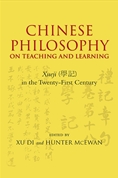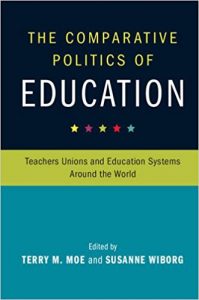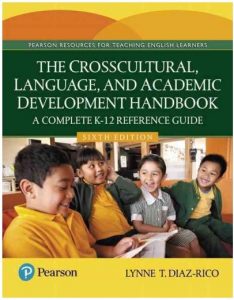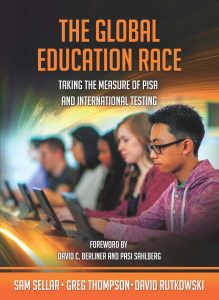Check out some of the new titles that have just arrived at the OISE Library. These selected titles explore the topics of global education and education around the world!
The case for intercultural education in a multicultural world, Jagdish S. Gundara
 In The case for intercultural education in a multicultural world, Gundara identifies the rapidly growing intercultural and multicultural challenges within the field of education—particularly in the United States. Minorities and groups within the disadvantaged social classes are often overlooked and denied the various opportunities within the education system. It is important for education systems to realize this and emphasize the greater importance of intercultural and multicultural education. The book is an anthology of thirteen essays written throughout the academic and professional career of Jagdish Gundara–UNESCO chair in Intercultural Studies and Teacher Education at the University of London. Each essay addresses a specific issue or topic regarding intercultural and multicultural education within the broader educational field. These topics include: the impact of globalization, inclusive education policies, youth and vulnerable groups, and many others.
In The case for intercultural education in a multicultural world, Gundara identifies the rapidly growing intercultural and multicultural challenges within the field of education—particularly in the United States. Minorities and groups within the disadvantaged social classes are often overlooked and denied the various opportunities within the education system. It is important for education systems to realize this and emphasize the greater importance of intercultural and multicultural education. The book is an anthology of thirteen essays written throughout the academic and professional career of Jagdish Gundara–UNESCO chair in Intercultural Studies and Teacher Education at the University of London. Each essay addresses a specific issue or topic regarding intercultural and multicultural education within the broader educational field. These topics include: the impact of globalization, inclusive education policies, youth and vulnerable groups, and many others.
Chinese philosophy on teacher and learning: Xueji in the twenty-first century, edited by Xu Di and Hunter McEwan.
 Written over two thousand years ago, Xueji is considered one of the oldest works on educational and teaching philosophy. It is part of the Five Classics that formed the foundations of the education system in China for more than two millennia. Chinese philosophy on teaching and learning: Xueji in the twenty-first century offers a new and modern translation of the historic Chinese text and examines it through both a Chinese and Western discursive lens. The book contains a collection of essays written by scholars and experts from around the world—offering their own unique interpretations and analysis on the similarities and differences between Imperial Chinese education philosophy and classical Greek school of thought.
Written over two thousand years ago, Xueji is considered one of the oldest works on educational and teaching philosophy. It is part of the Five Classics that formed the foundations of the education system in China for more than two millennia. Chinese philosophy on teaching and learning: Xueji in the twenty-first century offers a new and modern translation of the historic Chinese text and examines it through both a Chinese and Western discursive lens. The book contains a collection of essays written by scholars and experts from around the world—offering their own unique interpretations and analysis on the similarities and differences between Imperial Chinese education philosophy and classical Greek school of thought.
The comparative politics of education: Teachers unions and education systems around the world, edited by Terry M. Moe and Susanne Wiborg
 To understand how and why a country’s education system operates the way it does, it is important to first understand how political power is structured and exercised in that country. The comparative politics of education: Teachers unions and education systems around the world examines the relationship between the government and its education system in eleven different countries in an attempt to understand how factors such as power, money, and personal interests play a role in shaping education. The book is a collection of essays written by teachers and professionals in the education field across the globe. This anthology is aimed at examining and comparing how politics have affected education systems throughout different eras and nations—with a focus on elementary and high school education.
To understand how and why a country’s education system operates the way it does, it is important to first understand how political power is structured and exercised in that country. The comparative politics of education: Teachers unions and education systems around the world examines the relationship between the government and its education system in eleven different countries in an attempt to understand how factors such as power, money, and personal interests play a role in shaping education. The book is a collection of essays written by teachers and professionals in the education field across the globe. This anthology is aimed at examining and comparing how politics have affected education systems throughout different eras and nations—with a focus on elementary and high school education.
The crosscultural language, and academic development handbook: A complete K-12 reference guide, by Lynne T. Diaz-Rico
 The crosscultural language, and academic development handbook: A complete K-12 reference guide is a helpful teaching handbook that provides educators with practical strategies and tools to help them facilitate an inclusive learning environment for culturally and linguistically diverse students. Geared towards mainstream classroom teachers, this guide is divided into 12 distinct sections, each addressing a specific topic in linguistics and education. The handbook examines the differences between various language structures, theories in second-language acquisition, culturally responsive schooling, strategies in bilingual education, and much more. In addition to providing teachers with in-classroom tools to enhance academic success, the guide also offers strategies to engage parents and guardians in their children’s learning.
The crosscultural language, and academic development handbook: A complete K-12 reference guide is a helpful teaching handbook that provides educators with practical strategies and tools to help them facilitate an inclusive learning environment for culturally and linguistically diverse students. Geared towards mainstream classroom teachers, this guide is divided into 12 distinct sections, each addressing a specific topic in linguistics and education. The handbook examines the differences between various language structures, theories in second-language acquisition, culturally responsive schooling, strategies in bilingual education, and much more. In addition to providing teachers with in-classroom tools to enhance academic success, the guide also offers strategies to engage parents and guardians in their children’s learning.
The global education race: Taking the measure of PISA and international testing, by Sam Sellar, Greg Thompson, and David Rutkowski

The global education race: Taking the measure of PISA and international testing is a short yet concise overview of the issues and controversies surrounding international testing. Divided into seven chapters, the book introduces readers to the history of PISA and international testing, its validity, and the politics surrounding it. The book aims to examine how international testing fosters competition between nations in a race to compare one country’s education system to another. Drawing on academic research regarding global education policies, the authors provides compelling arguments on both the benefits and negative consequences of international testing, and offers potential solutions for policy makers to undertake.
